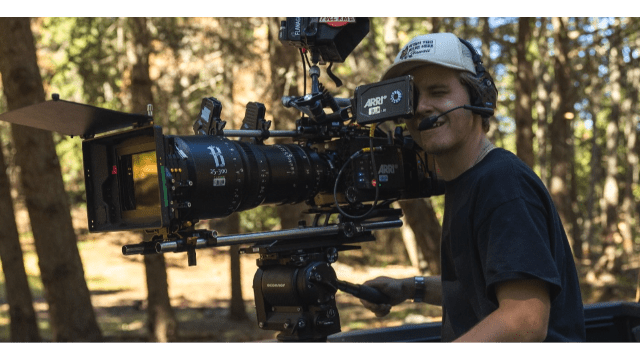Alexander Flanagan is a cinematographer whose passion for visual storytelling began with flying drones and quickly grew into a love for cameras and filmmaking. Since graduating, Alexander has shot more than 100 projects, including multiple feature films and several TV movies for major networks such as Lifetime, Hallmark, and Fox. Read more about his career in the Q&A below:
NYFA Alumni Network: Can you tell us a bit about yourself, where you're from, and what brought you to New York Film Academy?
A.F. (Alexander Flangan) : My name is Alexander Flanagan, and I’m a cinematographer from Marin County, California, just north of San Francisco. My passion for cameras began when I started flying drones, which quickly sparked an interest in larger, more advanced cameras. I began building camera support systems in my engineering class, building my own drones, and spending all my free time obsessively learning about cameras. At the time, I was studying construction management and working in the field. I'd spend most days digging ditches, wiring interior lights or doing demolition, a lot of physical labor. While I appreciated certain aspects of construction, I never felt truly passionate about it. Everything changed when a production crew came to film interviews with members of our construction team for a commercial. During lunch, I struck up a conversation with the Director about his equipment, and by the end of our talk, he offered me an internship at his company. Soon after, I found myself calling in sick to my construction job so I could operate cameras on mainly corporate shoots. It didn’t take long for me to realize this was what I wanted to do. I remember the exact moment, I finally felt like I had a calling. Everyone I worked with made fun of me for wanting to pursue filmmaking and called me “Mr. Hollywood.” Despite the judgment I left construction behind, moved to Los Angeles with some friends, one of whom was attending the New York Film Academy so I decided to enroll there myself. That decision set me on the path that brought me to where I am today.
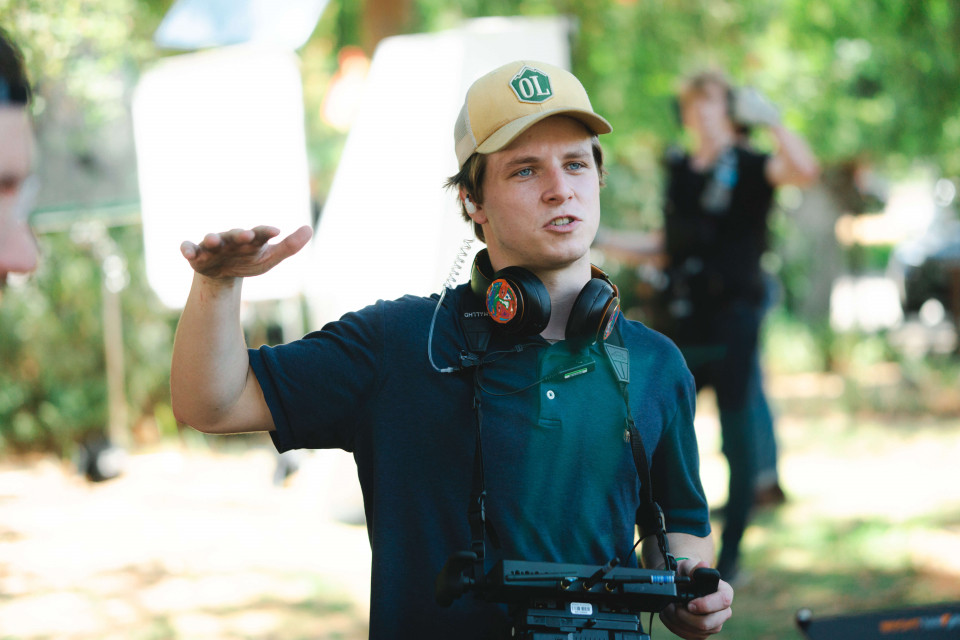
NYFA Alumni Network: What projects have you worked on since graduating? Have you won any awards or been showcased in any festivals or competitions?
A.F.: I graduated in December 2022 from the New York Film Academy’s Burbank campus with a BFA in Filmmaking. Since then, I’ve shot over 100 projects, including four feature films. I’m currently working with a commercial agency that’s been doing really well, and I regularly collaborate with a handful of talented music video directors. One of my recent films, Stitched, has been making its festival run and has picked up several awards, including Best First Feature and Audience Choice for Best Film. We have been selling out multiple theaters for our screenings. Another short film I shot earlier this year, Ichild, is also doing well in festivals, it screened at La Femme International and won best short at the Newport Beach Film Festival screening alongside Guillermo Del Toro. Since graduating, I’ve had dozens of films play at festivals across the U.S., which has become one of my favorite parts of being a filmmaker. It’s such a rewarding feeling to travel, connect with audiences, and celebrate everyone’s hard work. As a DP, I usually move straight on to new projects after we wrap, so I don’t really get to reflect on the finished work until I see it on the big screen. Watching it come to life with everything that is refined in post production is both a little nerve-racking and incredibly fulfilling. Seeing these films succeed has been a real pleasure and a huge source of motivation for me. I view each screening as a valuable opportunity to learn and grow from my own work.
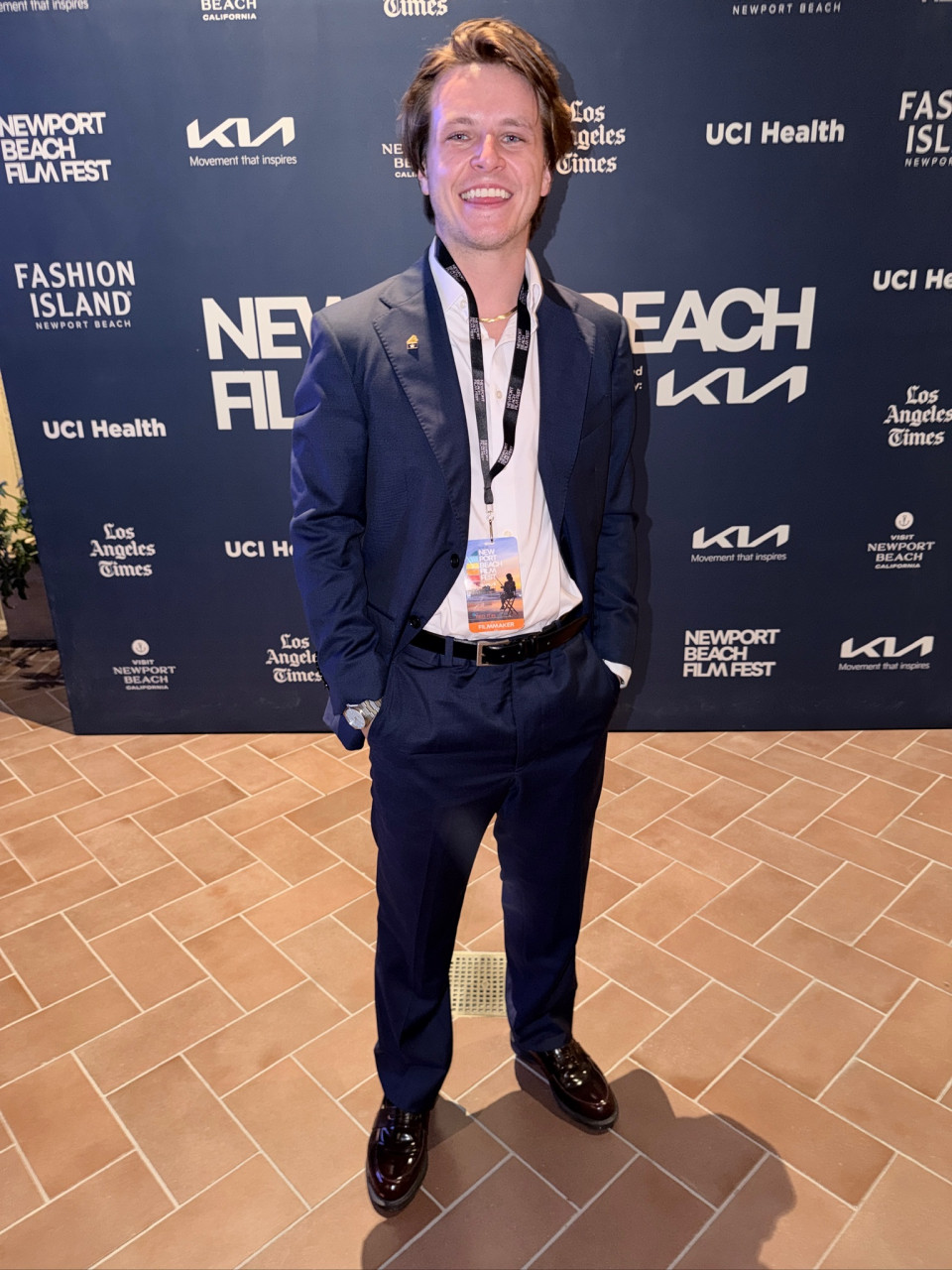
NYFA Alumni Network: Tell us more about how you landed your first Lifetime TV movie? What was the experience like working on those projects?
A.F.: While I was still studying at the New York Film Academy, I started working as a 1st Assistant Camera (1st AC) on TV movies for networks like Lifetime, Hallmark, and Fox. This opportunity actually came from a peer of mine that graduated from NYFA and began line producing for a big production company. Things got pretty hectic at times — I’d spend all day on set, then head straight to night classes, or make up coursework I’d missed while filming. But those long days were worth it. Being on set gave me the chance to learn firsthand from experienced crews, and I found myself studying just as much through observation as I did in the classroom. When it came time to shoot thesis films at school, I began applying the lighting and camera techniques I’d picked up from those larger productions. After a few years of working as a 1st AC, I built strong relationships with the production companies and several of their directors. Then, last year, one of those companies was in a tight spot trying to find a Director of Photography for an upcoming thriller. To my surprise, I was recommended for the job and it became my first big movie as a DP. I have to shout out the Director Marla Sokoloff for believing in me. It was definitely intimidating; it was the largest budget I’d ever worked with, and at 23, I was the youngest person on set. I’m sure a few people had their doubts because of my age, but I’ve learned that staying kind, humble, and collaborative goes a long way in this industry. As I got into the flow of things the imposture syndrome went away, although there were some curveballs, I consider the whole experience a success. Since this movie last year, I have shot two other feature films that are in post production right now!
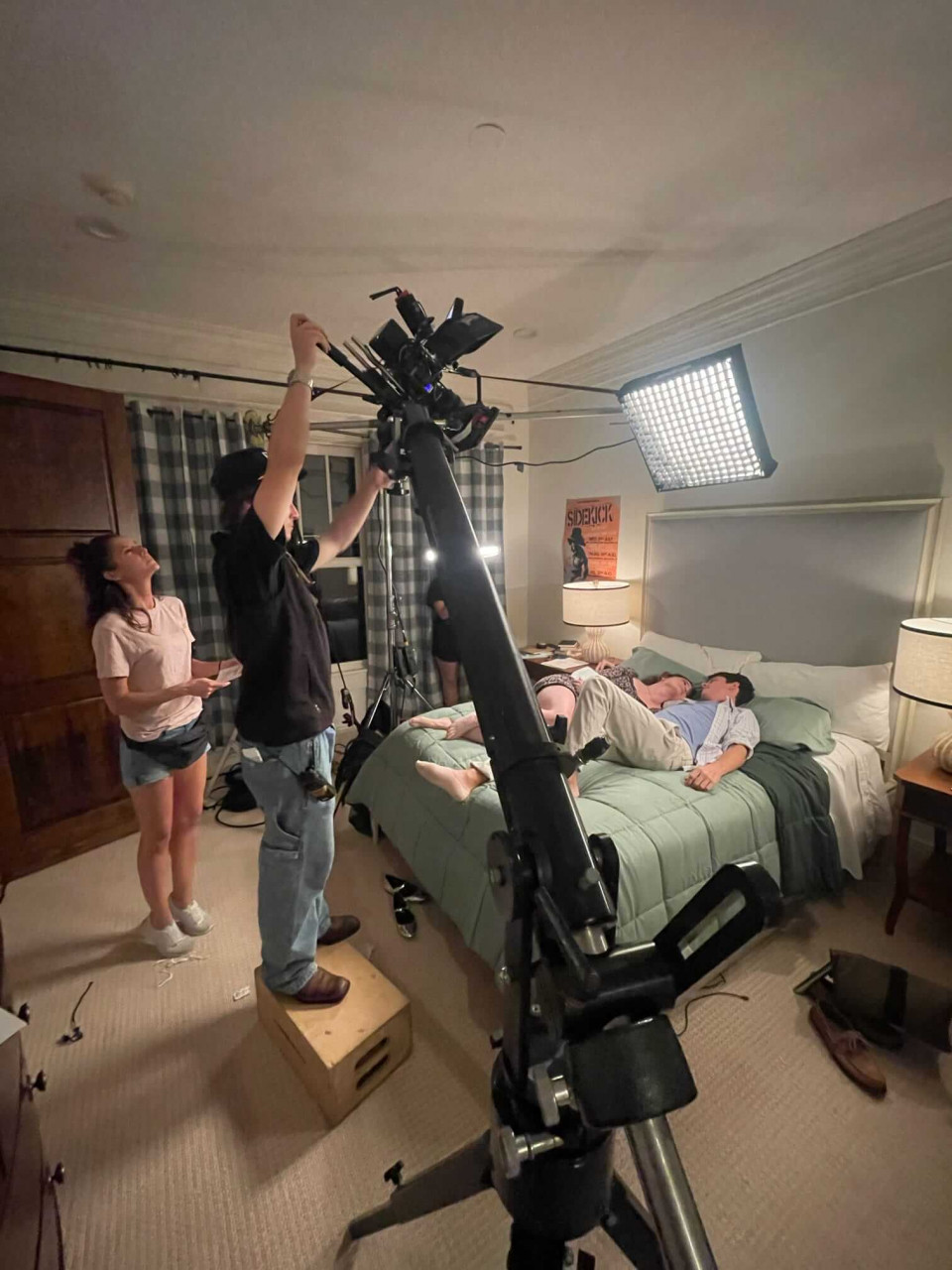 | 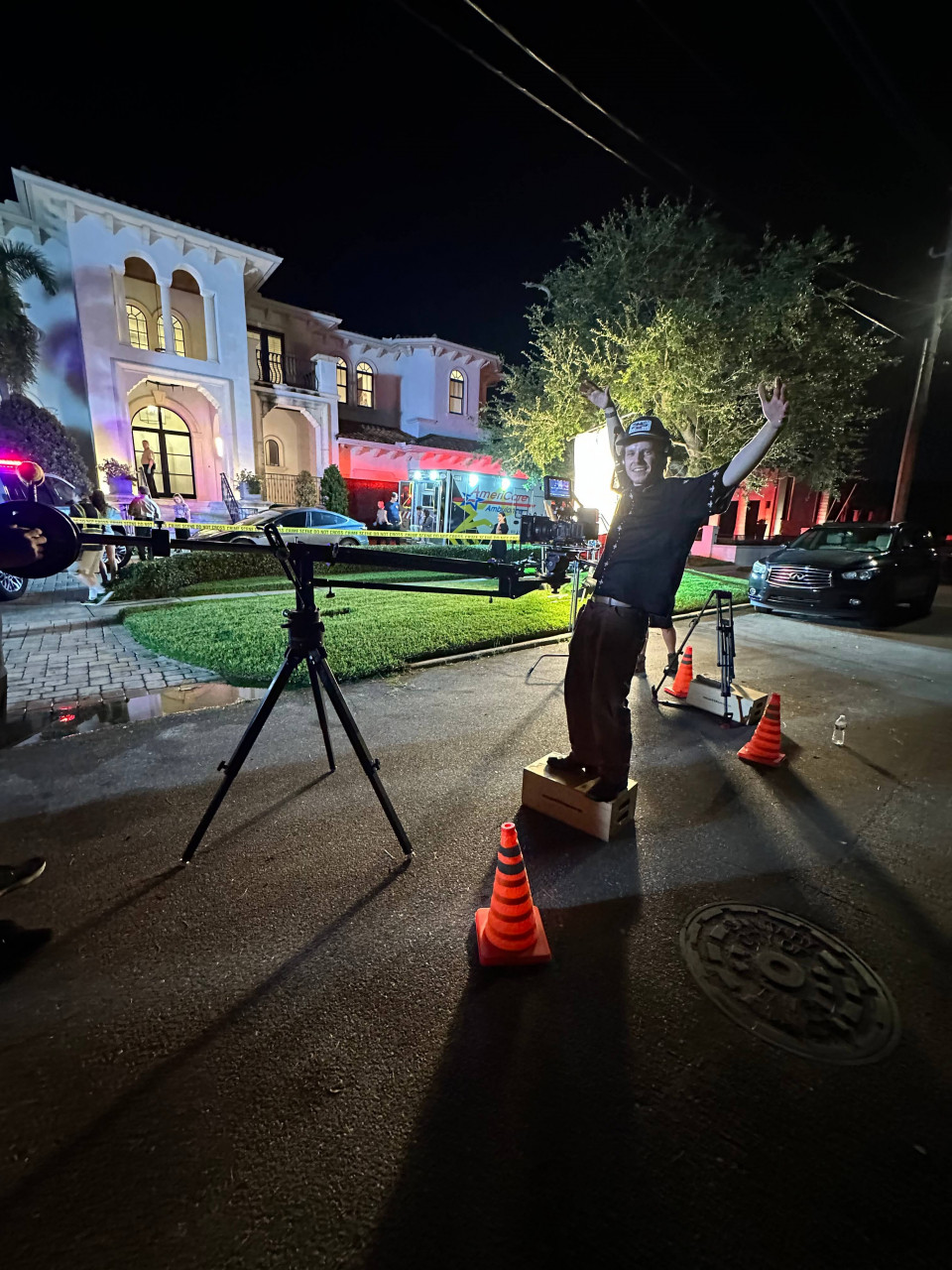 |
NYFA Alumni Network: How do you collaborate with directors to make sure your visual vision aligns with theirs?
A.F.: From my experience, every director works differently, so my first priority on any project is to sit down and talk with them about their vision. I pay close attention to what they focus on. Some directors are deeply invested in camera and lighting, while others are more attuned to emotion and performance. Whatever their emphasis, I take note. My goal is to understand the kind of cinematography they’re imagining and the visual qualities they appreciate in other movies, so I can begin to see the film through their eyes. Once I have that understanding, I dive into the script, reading it repeatedly and breaking it down scene by scene. I take notes on my own ideas and interpretations, always aiming to elevate the director’s vision while bringing in my own creative perspective. I make a lookbook with lighting and camera references that I present to the director to communicate my ideas clearly. Then I identify moments that might be difficult to achieve with the available resources or budget. But I always prepare alternative solutions that can accomplish the same emotional or visual effect, it's very important to be solution oriented. I believe it’s essential to plan where cameras and lights will go, but it’s even more important to stay flexible, knowing it could all change. I give the director and actors room to adapt on the day by being ready for more than just one blocking scenario. Filmmaking is the art of adapting in the moment and following instincts that best serve the story. I make sure the director and I are aligned on the emotional tone of each scene, so any adjustments we make remain consistent with the film’s overall feeling. I think it’s important to recognize that directing can be demanding and emotionally taxing so being supportive, calm, and solution-oriented on set goes a long way in maintaining a collaborative environment.
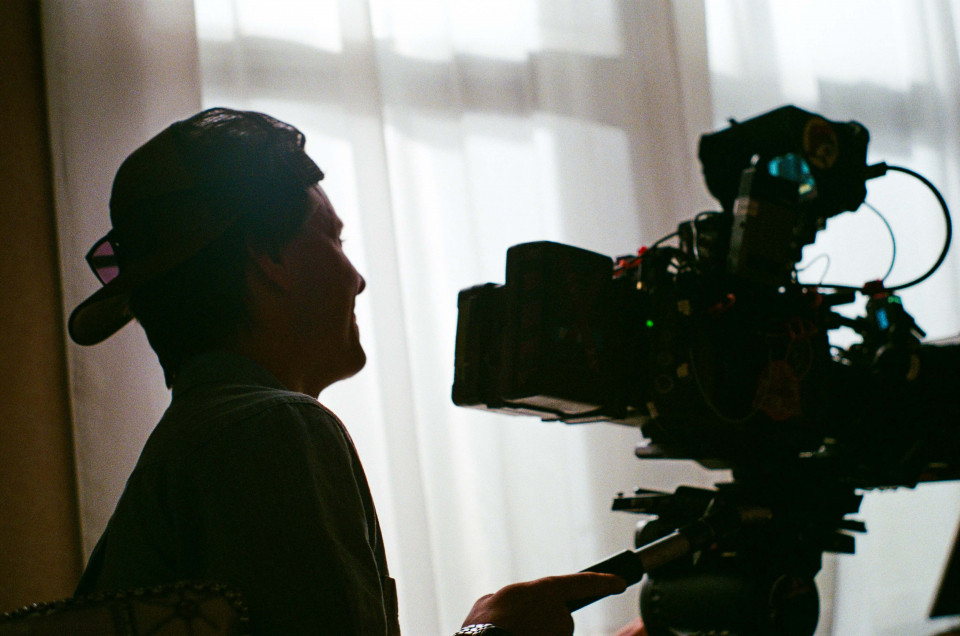
NYFA Alumni Network: How would you describe your cinematographic style or visual signature?
A.F.: There are certainly visual characteristics I appreciate, and patterns I have noticed in my own work. I like colder, greener light, I like silhouettes, I really enjoy handheld things that feel real and gritty. However my goal in visual storytelling is always to align the emotions of the script with the feeling created through the camera. I don’t believe in forcing a particular style onto a project; instead, I aim to let the story dictate its own visual language. I have shot many different genres and come to realize each has different kinds of unspoken rules. Of course, I like to shape camera blocking and lighting in ways that highlight aesthetics I personally appreciate, but those choices should always serve the narrative first. When you understand the story beats deeply enough, the film naturally develops its own style and rhythm. I’ve come to realize that my “style” as a Director of Photography extends beyond imagery, it’s also reflected in how I carry myself on set. Cinematography is as much about collaboration and communication as it is about technical skill. I make it a priority to communicate clearly and respectfully, because when the crew feels valued and supported, their work and the film reaches a higher level of excellence. It's important to be ready for anything and keep a good attitude while doing it. I pride myself on being a positive problem solver.
NYFA Alumni Network: What are some visual inspirations or cinematographers who influence your work?
A.F.: As a filmmaker, I’m constantly seeking inspiration. I study the light around me in everyday life, making mental notes of dynamics and moods I might be able to recreate on set. I am a huge fan of photographers like Bill Bradnt and read many photo books. Some cinematographers I greatly admire include Bradford Young, Greg Fraiser, Jeff Cronenweth, Darius Khondji, Vittorio Storaro and, of course, Roger Deakins. While I appreciate their amazing work, what inspires me most is their approach and philosophy around Cinematography. The way these artists think about storytelling, light, and emotion is what I try to include in my own work.
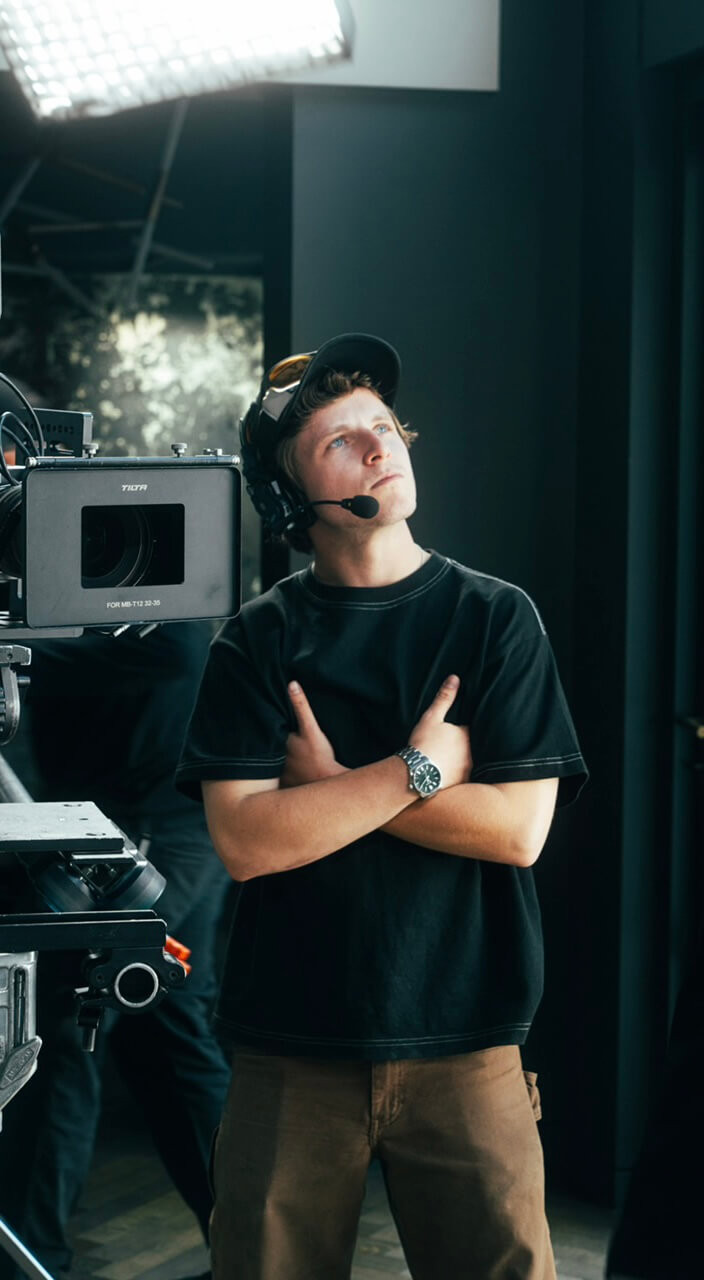 | 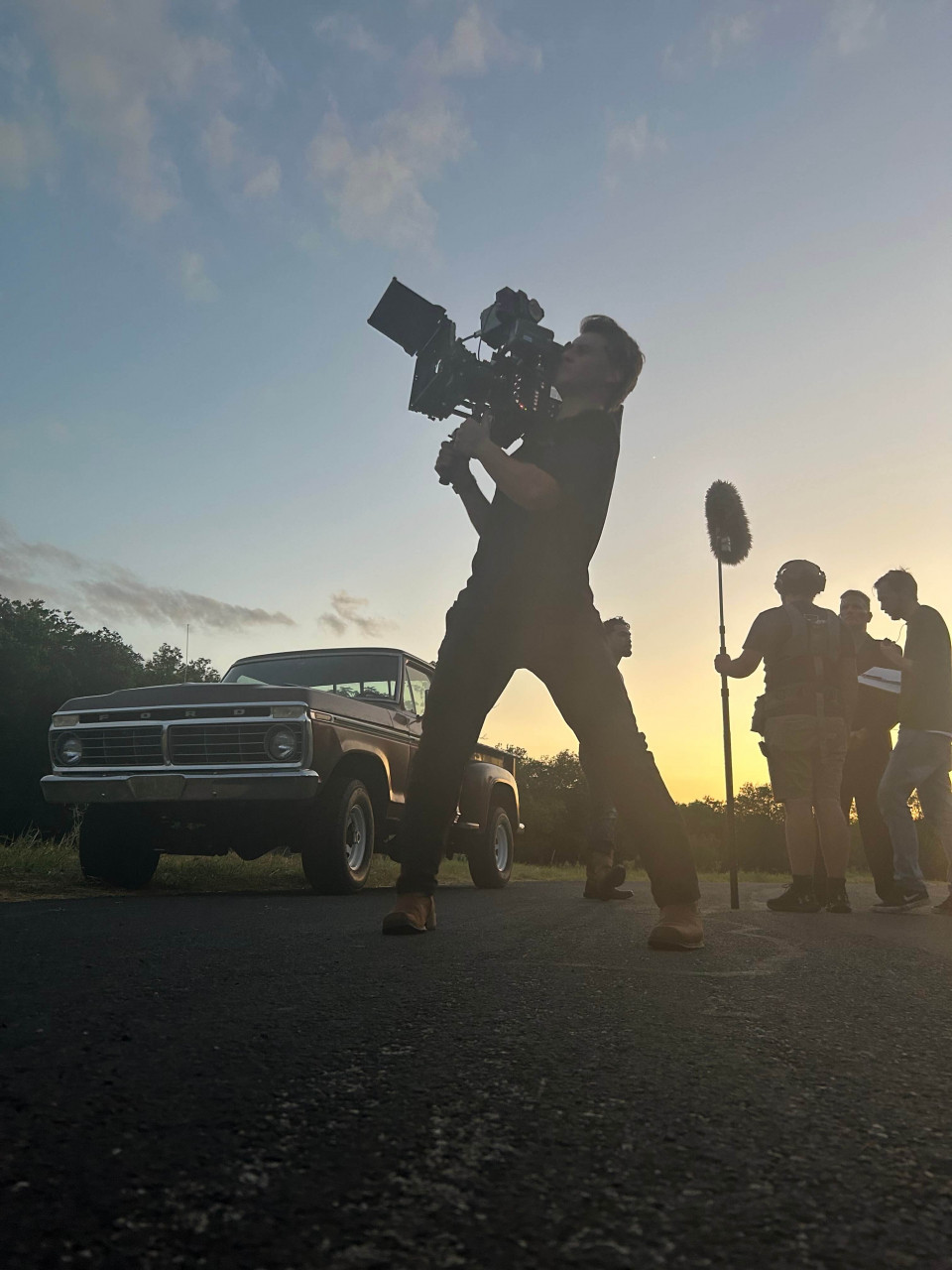 |
NYFA Alumni Network: What did you learn at NYFA that you apply to your projects?
A.F.: When I first started at NYFA, I was enrolled in a directing program, but very quickly I realized my true passion was cinematography. I pitched myself to as many people as possible and eventually became well-known around campus for my work behind the camera. I started shooting senior thesis films during my first year and ended up working on over ten of them throughout my time at NYFA, in addition to dozens of other projects. This was where I really began to experiment and learn, some ideas worked, some didn’t. Each attempt gave me the repetition and confidence I needed to grow as a cinematographer.
I also developed close relationships with professors, often asking them questions about gear, and creative problem-solving. Their guidance was invaluable. Working on my own thesis film was another major learning experience, as it forced me to dive into producing. I really had to learn what it takes to make a film aside from what I usually do behind the camera. This experience has given me a deeper understanding of working with producers in the professional world, knowing what they have to deal with, and how it impacts my side of production. Looking back, I can honestly say I wouldn’t be where I am today without the education, mentorship, and opportunities I gained at NYFA.
NYFA Alumni Network: What has it been like navigating the film industry as a young cinematographer—any advice for others just starting out?
A.F.: The film industry can be overwhelming, there’s rarely a roadmap. No one tells you exactly what to focus on, how to spend your time, or how to land jobs. That’s why it’s so important to keep learning and to continually meet new people, especially people doing what you aim to do. As a DP I believe it’s important to just keep shooting and stay obsessed with trying new things. One of the most valuable skills you can develop is the ability to see opportunities where others don’t. Recognizing possibilities in unexpected places can make all the difference and help sustain you when things get challenging. Always prioritize new connections and new networks over some extra money. Establishing relationships will get you more consistent work and take you further. When work does come along, it’s important to make sure the director feels supported in their vision. As a DP, we’re “dating” the project, but the director is “married” to it — it’s their baby, and if you don’t treat it as such, you may be forgotten. Even if a job feels insignificant, you never know who's watching or where it will lead. Shoot everything as if it is the last job you will ever get.
Stitched Movie: https://stitchedmovie.com/

Comments0
Please log in to see or add a comment
Suggested Articles


